Protestant and Catholic Beliefs Series Conclusion
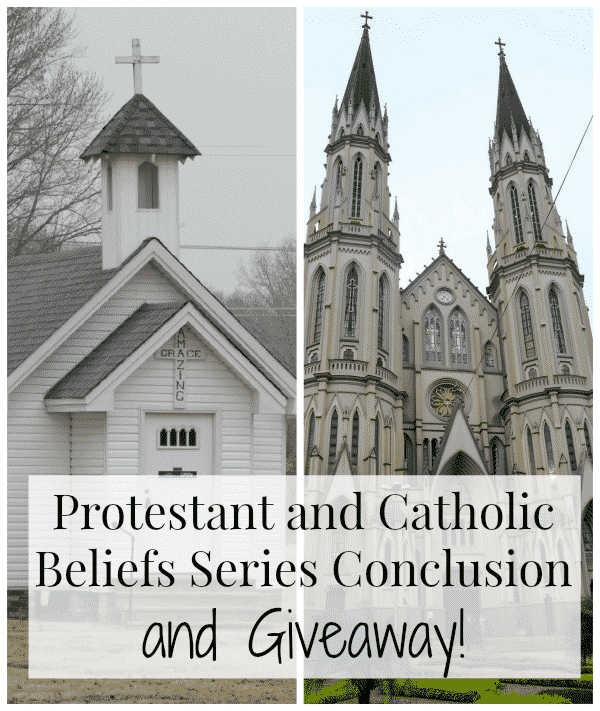
This post is the conclusion post to a series entitled Letting God Lead: My Journey Through Protestant and Catholic Beliefs. If you are new to this site or this series, I HIGHLY encourage you to check out the rest of the series as well. *This post contains affiliate links.
A little over a year ago, I began a journey–a journey to find out the truth behind Protestant and Catholic beliefs–and what a journey it has been!
I’ve read countless books and articles, taken classes and talked with priests, debated apologetics, attended mass, listened to your stories, and shared my own. I was even on the radio! (Click here to listen to the recording.)
We covered a LOT of ground in this series, and I hope it’s true to say that we all learned a lot.
- In the series introduction, I shared my story: How I grew up (and still am!) a very dedicated, Bible-believing Christian, and how I got started on this journey in the first place.
- Next, I did my best to dispel 10 Common Catholic Myths in the hopes that everyone following along would be able to do so with an open and informed mind.
- We discussed the Eucharist, and I presented solid evidence concerning whether or not it is the true Body and Blood.
- We discussed “Sola Fide” and whether faith alone is enough or if we need something more.
- We discussed “Sola Scriptura,” talking about important issues such as tradition and the authority of the church, the Bible and the first century apostles.
- We discussed the history of the Catholic church and evidence for/against the Apocrypha.
- I offered some insights on what Catholics really believe about the Pope, priests and confession and why.
- And then I did the same thing with the issues of Mary, Saints and Statues.
- We took a look at Biblical and historical evidence for/against Infant Baptism.
- As well as Biblical and historical evidence for/against Purgatory and Indulgences.
- And then last week, we capped off the series with a lighter topic: Why do Catholics do all the weird stuff they do?
Of course there will always be more to say and more to cover, but hopefully this series has been enough to get you thinking and researching for yourself, instead of simply blindly believing what you’ve been taught from birth. Because when I examined what I’d always been taught, I found out a lot of it was wrong. My teachers were wonderful people, but so many of the principles they taught me simply were not Biblical. I don’t want you to make the same mistake.
Whether you are Protestant or Catholic–honestly, I could care less. Maybe I should? But it really doesn’t matter to me. What matters to me is that you have researched the issues yourself, that you know what and why you believe, and that you can confidently defend your beliefs to others. That you believe on purpose because you really know it to be true–not that you believe by default because someone told you something and you didn’t bother to fact check for yourself.
So now, for the moment you’ve all been waiting for–what did I decide???
[thrive_leads id=’23166′]
Is the Eucharist the Real Body and Blood? Yes, I believe it is.
From the language Jesus used to the Jewish peoples’ reaction to the early Church’s response–all of the research I’ve done so far leads me to believe that it has to be real. (Find the information that lead me to this decision in my post: Is the Eucharist Really Just a Symbol?)
Is Faith Alone Enough? No, I believe God expects something more.
To be very clear: Both Protestants and Catholics agree that you cannot earn your way into Heaven through works. We are saved because of God’s grace, which allows us to have faith. But in light of the verses I shared in my Is Faith Alone post as well as the following two arguments, I have to agree that yes, you do need faith, but that you can’t just stop there. Once you are already “saved” (or “justified”), your life needs to reflect that. I think, deep down, many Protestants would agree. You can’t just say a prayer and then go on your merry way.
Argument #1: Protestants say that nothing we DO can get us to Heaven. Yet, the very act of choosing to believe is a verb–something we DO. God doesn’t force us to be Christians against our free will. We choose it. So we can’t reject ALL works, because believing is a work itself.
Argument #2: If simply believing were enough–well, even satan and his demons know that Jesus is God. They know He is the only way to Heaven. If all you had to do was believe–wouldn’t that make satan a Christian? Yet, I’m pretty sure we would all agree that’s preposterous. Why? Because he certainly doesn’t act like a Christian! He doesn’t repent, or submit or act like a Christian–all things Christians DO. So simply believing in Jesus can’t be enough.
So in light of alllll of the verses I listed in my Is Faith Alone Enough? post (check them out!) combined with the two arguments above, I can only conclude that we HAVE to play a role somehow. Faith alone is not enough. I have NO IDEA where that line is–concerning what we have to do, how much we have to do, etc, but I have to believe that something more is required.
Who has the Ultimate Authority–the Bible or the Church? The Church… I think? But which one??
Based on the findings I shared in Who Has the Ultimate Authority? A Biblical Look at Sola Scriptura, I strongly believe that the Bible was never meant to be a comprehensive how-to guide that covers every topic. It IS infallible on the issues it covers, but it doesn’t cover everything, and it leaves a lot of things open to (mis)interpretation. So, while I am definitely very much a Bible-believing Christian, I have to agree that we need more than just the Bible; we need the rest of the teachings and history–which we *should* find in the church.
However, while I totally understand and support the need for and appropriateness of having the church be our authority (under Christ of course!), I did not see any evidence that points to the *Catholic* church having to be that authority, instead of the church in general.
Catholics believe that the Catholic Church we have today is the same church the Christian churches had in the first century, but is it? How do we know they didn’t get off 5 degrees somewhere and end up way off course today? How do we know they clung to the right things? The pharisees thought they were experts at keeping the law, but they got in big trouble when Jesus came to town. I mean this in a polite and sincere way, but how do we know the Catholic Church hasn’t done the same thing? This has been my main nagging doubt this entire time, and it has yet to be resolved.
(And yes, I know that Jesus would send the Holy Spirit to guide the Church and keep her from error, but what proof is there that that verse is talking about the *Catholic* church–not the church as a whole or a different denomination?)
So…. I like the idea, but I haven’t been able to fully accept it yet. (Read more in my post: Who Has the Ultimate Authority? A Biblical Look at Sola Scriptura)
Is the Apocrypha Scripture? Don’t ask me; I have no idea.
Did you see the chart at the end of my History of Christianity post?? All of the information is hopelessly contradictory!! And while I can throw out several of the arguments on one side or the other (the books were found with the Dead Sea Scrolls–we checked!), I still see very logical points on both sides. So quite honestly, I have no idea. I am ever so slightly leaning towards the Catholic perspective since they were in the Bible for hundreds of years before Martin Luther took them out, but I could easily go either way. I simply don’t know at this point.
Concerning Priests, the Pope and Confession: Makes Sense to Me
I like the idea of having a God-led priest instead of every person misunderstanding the Bible for him or herself. Obviously with everyone being able to come up with whatever interpretation they want, we aren’t doing a very good job. (30,000 Protestant denominations!) Obviously not to say we shouldn’t think for ourselves (this whole series is so that you will!), but having one trusted standard sure seems nice right about now! (But is Catholicism it? I don’t know!)
I don’t have a problem with the pope being infallible (I don’t know if he IS; I do believe it is possible). I’ve always liked the idea of confession and thought it was a good practice. I do believe priests could have the power to forgive sins. It does seem a little unnecessary to me, but that’s probably just my upbringing. I don’t have any theological problems with any of it. Logically, it makes a lot of sense.
Concerning Mary, Saints and Statues: I Still Think it’s Weird… But There are Much Worse Things It Could Be…
I do NOT believe Catholics worship Mary, saints or statues. (Well, maybe some do in other countries, but your average American Catholic–no.) I personally think some Catholics pay them more attention than they maybe ought, but then again, you’re going to have people mess things up in any religion.
Mary: In all honesty, I simply don’t “get” all the hubbub about Mary. Yes, she said yes to God, but people say yes to God every day. Even if she is the most important human in history (and I don’t have a problem with that)–she’s still human. Even if she were sinless (and I don’t have a problem with that either)–it was because God preserved her from it, not because she did anything herself to deserve it any more than the rest of us. I understand that Mary is supposed to point us to Jesus, but I can’t help but feeling that, for some people, all the Mary stuff has become a distraction.
Saints: I don’t know if I feel particularly compelled to pray to any Saints, but I don’t necessarily have a problem with the practice **when done according to official Catholic doctrine.** I don’t think it’s really necessary, but I don’t think it’s sinful, either.
Statues: As long as Protestants have nativity scenes, they can’t point fingers at Catholics because it’s the exact same thing. I have zero problem with statues (when used appropriately).
(For more information on this topic, please check out my post: What Do Catholics Really Believe About Mary, Saints and Statues?)
Is Infant Baptism Scriptural? I’d personally rather not wait.
I don’t know that Scripture is incredibly clear either way, and I say this because I can easily make good, Scriptural arguments for either side. Plus, when you look at early Church history, they did it both ways. BUT since it can’t hurt and it can potentially offer many huge benefits, according to Catholics–why wait? We baptize our babies as infants.
(Read more about the subject in my post: Infant Baptism or Believer’s Baptism? Which is Correct?)
Are Purgatory and Indulgences Scriptural? Probably
As I was researching for my post on Purgatory and Indulgences, I was surprised to find so many verses that *could* reference Purgatory. And honestly, the teachings make sense. I don’t know if I believe in them for 100 sure at this point, but I don’t have a problem with either of them. (Read more in my post: What is Purgatory? What are Indulgences?)
So What Did I Decide?
I decided I wasn’t ready to become Catholic at this point. We attended all of the learning type classes and then dropped out before the rites. We still attend Mass every Sunday.
The reason I chose to drop out is because when I looked up what the rites of sending and election are (the “ceremonies” we would go to next), I read that I would be asked “Do you believe all that the Catholic church teaches to be true?” And my sponsor (my husband) would have to vouch for me.
Well, I can’t in good faith go up in front of an entire church and declare that I believe everything the Catholic Church teaches is true. I’m not saying it’s not. I’m saying: I don’t know. I still have questions. I’m still learning. I’m still seeking.
I haven’t read the entire Catechism yet. I haven’t read all of the Apocrypha yet. How can I state I believe they are true if I don’t know what is in them? At this point, I can’t.
I’ve changed my mind on a LOT of really important things–the Eucharist, confession, praying to the saints… I’ve learned a lot and I’ve come a long ways. But God isn’t finished with me yet.
So the series is done for now, but that doesn’t mean our journey has to be over. Go back and read through the posts again, really mulling over the points. Get and read the books above. Talk to your priest or pastor. Talk to me; I’d love to hear from you!! Don’t let your journey stop here.
Here’s a list of topics we’ve covered so far, in case you still need to go back and catch any you missed.
The Day I Realized My Religion Got it Wrong
10 Common Catholic Church Myths that Critics Believe
Is the Eucharist Really Just a Symbol?
Who has the Ultimate Authority? A Biblical Look at Sola Scriptura
A Brief Look at the History of Christianity
What All Christians Should Know About Priests, the Pope and Confession
What Do Catholics Really Believe About Mary, Saints and Statues?
Infant Baptism or Believer’s Baptism? Which is Correct?
What is Purgatory? What are Indulgences?
Why Do Catholics….? Honest Answers to Your Burning Questions
Protestant and Catholic Beliefs Series Conclusion
So that’s an update on me–how are you doing? What questions are you still wrestling with, if any? Let’s discuss!

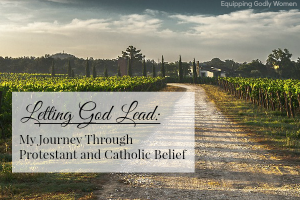
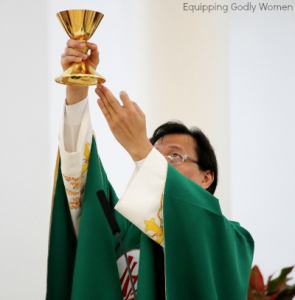
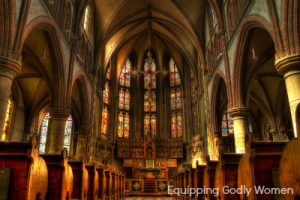
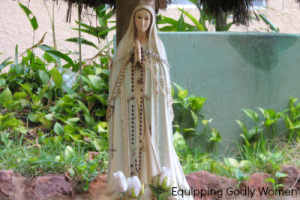
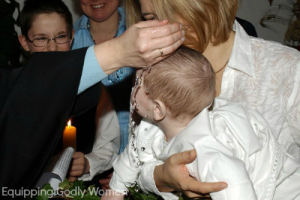
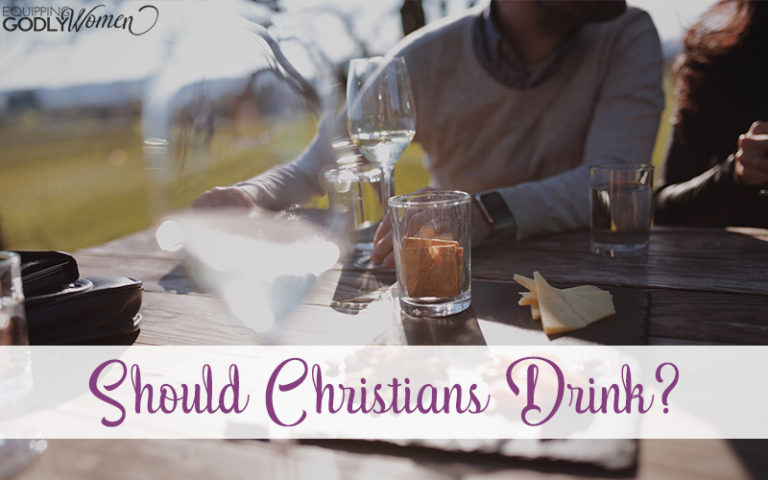


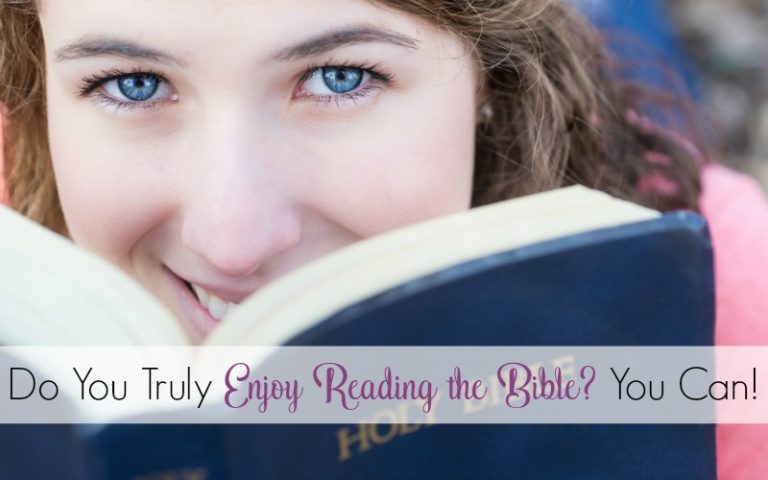
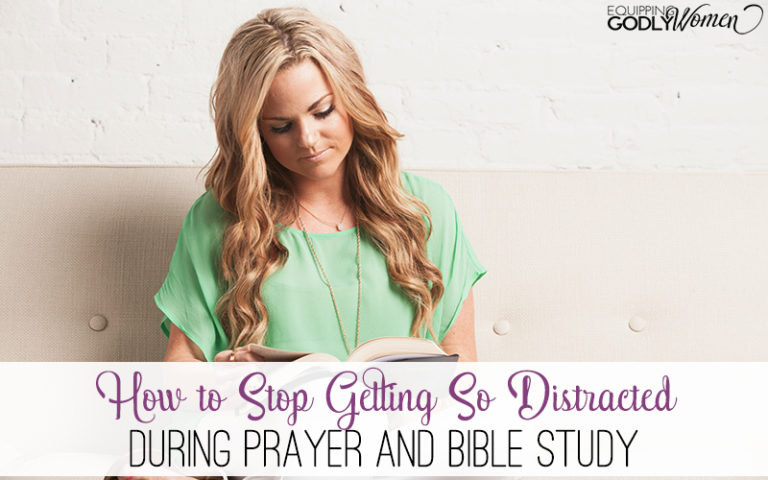
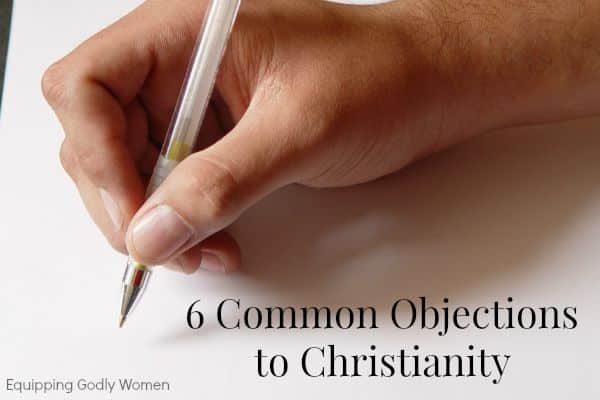
I have been Catholic for a year and love learning and growing more in my faith! 🙂
Glad to hear you’re learning and growing! That’s exactly where we all need to be!
I was raised Roman Catholic. Baptized, First Holy Communion and Confirmation all Roman Catholic. Attend Catholic school for junior high and loved it. My children are all baptized Roman Catholic. My oldest (he’s 28) is just now exploring faith. My other son (25) and daughter (19) are both Presbyterian, Reformed. My husband is Lutheran. Lutheran is a lot like Catholicism. My husband and I had been attending an evangelical Christian church. I attend an evangelical southern baptist college (online). To me it seems all the same. We all believe in one God. We know that Jesus died on the cross for our sins. Doesn’t matter what you call it. A Christian is a Christian. And that’s all that should matter. It’s “religion” that gets in the way of faith. Lose the labels (and I say that with all love). We’re all believers. And we know why we follow Christ.
The word Apologetics caught my eye because I am currently taking an apologetics class as part of my major. I am really enjoying it. It has sparked a lot of things to mull over.
Yes! The point of this series was/is not to highlight our differences in a divisive way, but just to explore the topics so we can all learn, grow and figure out what and why we believe. I love apologetics too–so interesting!
Linda, I’d be a little careful about saying that “religion” gets in the way of faith: religion is the outward expression of and participation in what we profess to believe. Moreover, consider that a Church with a religion gave us the Canon of Scripture; furthermore, even those who claim to pit Jesus against religion and disdain religion forget that such a practice is itself a religion– a religion that claims to do what it likes for believing whatever it wants, and also apart from what the earliest Christians believed. None of the Early Church Fathers, themselves disciples and successors of the Apostles, for example, saw Scripture as the ultimate authority like Martin Luther did and many to most American Protestants do. If we claim that it is, what makes us right and them wrong?
“To me it seems all the same. We all believe in one God. We know that Jesus died on the cross for our sins. Doesn’t matter what you call it. A Christian is a Christian.”
But Unitarians, from what I remember, don’t believe in the Trinity. So what do we mean by “one God”? The Catholic Church teaches the following about the Trinity– Three Divine Persons, One Divine Substance, as opposed to God as one person. As per the Nicene Creed, Father and Son are consubstantial in the unity of the Holy Spirit. Also not every Christian believes in the Real Presence as per St. John’s Gospel. Many Protestants view the Eucharist as a symbol. Catholics do not: Catholics understand that first-century Jews were scandalized when Christ said “unless you eat My Flesh and drink My Blood, you shall have no life in you,” and left. He let them go, asking his disciples if they wished to leave, also. So we do believe different things, all of which have logical consequences, and Catholic belief in the Eucharist is distinct. Lutherans believes in the Real Presence, too, but consubstantiation is not the same as transubstantiation: it matters whether you believe that Jesus is present in the bread and wine, or whether you believe that bread and wine are actually changed, in substance, into the Body and Blood of Christ, even if they still look like and taste like bread and wine.
Historically, you also can’t deny the Holy Trinity and claim to be a Christian, regardless of what you want to call yourself: Christian belief isn’t simply what we decide to call ourselves based on our loving and following Jesus– it is the belief of the Church going all the way back to the Apostles. So when we say things like that, what makes us right and the historical Christian faith wrong? Do we claim to have more authority than the Council of Nicaea to decide what Christian belief is and isn’t? If we don’t trust the Early Church, isn’t that saying that we don’t trust Jesus and the Apostles?
And what do we even mean by “Jesus”? We all– from Bill O’Reilly to Deepak Chopra to Oprah– claim or assume to know, given how domesticated Jesus is in our culture. But it actually matters whether or not we believe that Jesus Christ is fully God, fully man, because only a Jesus who is also God and not merely human can lay down His life of His own accord and rise from the dead– and if Christ did not rise from the dead, our faith is in vain. What we believe about Who Jesus is also says something about how He saves us and the manner in which He chooses to do so. So okay, Jesus died on the Cross for our sins– but it matters whether we believe Jesus is God or not: because either God died on the Cross to take away our sins, or He didn’t. If God chose to suffer for us, then He also knows what it’s like for us to suffer, having taken human nature unto Himself. So He’s either intimately close to us when we suffer, or He isn’t.
What an amazing series…I am not quite through reading it…I admit I am slow 🙂 I am a Protestant, married to a cradle Catholic turned Protestant. To tell you the truth we are still searching for truth and I pray we will never stop. This series has challenged me to look at Christianity as a whole not fragmented and give real time to prayer while wading through these important issues. I am thankful that you took this challenge upon yourself as you have blessed so many people along the way!
That’s okay–it’s a lot to digest! I’m looking forward to some time for prayerful reflection too. Haven’t had enough of that lately 🙂
Thank you
Thanks for such a great series! My husband and I just joined the Church a year ago, and basically had all the same questions you do 🙂 What finally answered our question about the authority of the Catholic Church is Jesus promise that not even the gates of hell would prevail against the church (Matthew 16:18) and that whatever Peter “binds on earth will be bound in heaven.” Once we studied more about the succession of popes and they can trace the line all the way back to St.Peter, we were sold. If Jesus promised to protect the Church from error, then we had to believe him and take him at his word.
Thanks a big point for me too, except–how do we know the church being referenced is the *Catholic* church, not a different denomination or just the Christian church as a whole?
I’ve been enjoying your posts, Brittany. I think you’re where you need to be at the moment, in that I can understand why you can’t, in good conscience, commit until you’ve thought things through. I don’t claim to have a definitive answer to your questions, so this, if anything, is a sketch of where an answer likely lies.
The biggest stumbling block that you seem to wrestle with right now is authority, whereby your “the Church or Scripture?” question and your question about the Deuterocanon are actually related. But if you don’t know whether the Church or Scripture has ultimate authority, can you really ask the last two questions about whether infant Baptism and Purgatory are “Scriptural”? I’m a little confused, because you admit that Scripture is not self-interpreting in your admission that having the Pope makes sense. But by asking those questions about Baptism and Purgatory, you’re implying that Scripture has ultimate authority, which is your fall-back position from your Protestant upbringing– a question that, by your own admission, you’ve yet to answer and still struggle with.
Moreover, I’ve read some of your older posts about where the Bible comes from, and you note that the Bible is the gift of the Church, not the head of the Church– but yet, the Church isn’t something nebulous; the Church is the Body of Christ. Christ is the Head of the Church, and the Church is His Body. But Christ is Someone specific, and He builds His Church in a specific way: the authority to bind and loose pertains to Who Christ is and isn’t. When Christ asks, “who do they say that I am?” The Apostle who answers that question correctly is St. Peter– and He knows the answer not by way of what flesh and blood could’ve told him, but by way of the Father in Heaven. That is the special charism of the Pope and comes with the office– for example, Pope Francis now has that charism; Pope Benedict XVI relinquished it upon his resignation (once he’s no longer Pope, he ain’t got that charism). And if you read Matthew 16:18 more carefully, Christ does not give the keys– and with them the authority to bind and loose– to “the church” as a loose collective. He gives them to someone in particular: St. Peter. In both the Old Testament and the New Testament, the chief steward of any house– the al ha bayyit– is given the keys of authority. Also, when God chooses someone for a specific purpose, He changes that person’s name: Abram to Abraham, Jacob to Israel, Simon to Peter, and Saul to Paul. The Church is not, and has never been, a democracy: she has always had a hierarchical structure. Jesus did not just have disciples; He chose Apostles, all of whom were the first bishops, themselves priests, and who chose and ordained their successors. The Apostles and their successors also recognized the authority of St. Peter: https://www.catholic.com/tract/peters-primacy. Note that the Pope is the Vicar of Christ, and not the People’s Supreme Representative. In other words, the Church that gifts us with the Bible isn’t nebulous, loose, or invisible. She is visible, with particular characteristics.
In addition, one does not pit the Holy Spirit, the Church, and Christ against each other, by virtue of who and what they are: the Holy Spirit is Christ’s Own Holy Spirit, Christ is the Head, and the Church is His Body. Pitting them against each other, as many Protestants seem to do when they say things like “forget the Church, follow Jesus,” or claim to have the Holy Spirit and yet can’t agree on Scriptural interpretation, is incoherent since Truth does not contradict Truth, and Christ would hardly be at war with Himself, now would He? Also, consider that the same Holy Spirit that changes bread and wine into the Body and Blood of Christ at Mass at the invocation of the priest standing in Persona Christi, is the same Holy Spirit Who protects the Church’s teaching from error. It’s why I have a bit of a problem with something you said earlier– “the Holy Spirit will lead us into all Truth, but it doesn’t mean that we’ll follow”: wouldn’t not following the Holy Spirit mean disobeying Christ? Also, how does one even belong to Christ’s Body without obeying the Holy Spirit? One might belong imperfectly, but fully?
Moreover, Peter knowing Who Jesus is when the latter asks, “Who do *you* say that I am?” (after hearing answers like “Elijah” and “John the Baptist”) may seem like no big deal in our culture where Jesus is everywhere to the point that He’s domesticated, whereby “Everybody (supposedly) Knows” Who Jesus is. Except that the Early Church had to contend with heresies, many of which still abound today for being given new life. It actually does matter whether you believe that Jesus was fully human and fully divine or not, just as it matters whether you believe that the Father and Son are consubstantial in the unity of the Holy Spirit. For example, many Christians, Catholics included, profess the Nicene Creed, none of which one can deny if one, as per historical practice, claims to be a Christian– and yet, they will separate “nice” Jesus out from “nasty” Jehovah, which not only contradicts Christ in Scripture saying that “I and the Father are one,” but also the Creed. It also matters whether you believe that God can act through matter or not– if you don’t believe that God can act through matter, then you essentially deny the Incarnation, which you cannot deny, either, if you claim to be Christian.
“Catholics believe that the Catholic Church we have today is the same church the Christian churches had in the first century, but is it? How do we know they didn’t get off 5 degrees somewhere and end up way off course today? How do we know they clung to the right things? The pharisees thought they were experts at keeping the law, but they got in big trouble when Jesus came to town. I mean this in a polite and sincere way, but how do we know the Catholic Church hasn’t done the same thing? This has been my main nagging doubt this entire time, and it has yet to be resolved.”
Good question! To ask whether the Catholic Church didn’t get off 5 degrees somewhere and end up way off course, you’d have to ask or pinpoint when that might’ve happened, and that date would have to be pretty early in order to dismiss today’s Catholic doctrines, which were practiced in the Early Church. I think that the answer to your question likely lies in Apostolic Succession and the Early Church: you’d have to show that the witness of the Apostles in the New Testament is different from the witness of the Apostolic Fathers of the Early Church. Moreover, when Christian doctrine is handed down, it isn’t passed down like a football– it develops organically, like when the times require further clarity. But it develops in continuity with what came before it. It doesn’t backflip. I think John Henry Cardinal Newman might well help you here, as would Mike Aquilina, “The Fathers of the Church,” and (though it’s perhaps a little dated) Karl Keating, “Catholicism and Fundamentalism.” Moreover, I’ve noticed that in your post on Church history, if I recall correctly, you don’t really engage with the Church Fathers in depth.
Moreover, the issue of Apostolic Succession is also related to the authority of the Church when it comes to the interpretation of Scripture and also determining the Canon of Scripture, which is where the Deuterocanon comes in: in order to trust the Canon of Scripture, you have to believe that the Holy Spirit did not abandon the Church. In addition, some of the arguments brought up about the Deuterocanon, i.e. whether Christ referred to/quoted them or not, that you refer to seem to come from Brian Edwards’s defense of the Protestant Canon. But Joe Heschmeyer, in rebuttal, notices that Edwards applies a more relaxed standard for the books he accepts, and a far stricter standard for those he does not: http://catholicdefense.blogspot.com/2012/09/brian-edwards-in-continuing-my-search.html (see, specifically, the section on Jesus and the Apostles, whereas the supposed standard for including a book in the Bible is whether Jesus and the Apostles quote it directly– except that Edwards and those who make the same argument as he does fail to note that there are several books of the Old Testament that Jesus and the Apostles don’t quote directly, yet they are in the Protestant Bible nonetheless).
The four marks of the True Church is that she is One, Holy, Catholic, and Apostolic, as per the teachings of the Early Church summed up in the Nicene Creed– and that she must have all of them. Fr. Dwight Longenecker explains it way better than I can: https://www.catholic.com/magazine/print-edition/how-do-we-know-its-the-true-church
I wrote about Purgatory and Infant Baptism in terms of being Scriptural, not because I believe Scripture is the ultimate authority (though I DO believe it is infallible), but because I realize that many, many of my readers are Protestants, who wouldn’t give much weight to church Tradition. So, I tried to include both–both historical evidence (such as what the common practice was way back when) as well as verses to give a more compelling argument or more points to ponder.
“Also, how does one even belong to Christ’s Body without obeying the Holy Spirit?” — I don’t think that anyone is saying you should totally ditch one for the other. I was just trying to say that people don’t always get it right. They might think that they are following the Holy Spirit, or they might not even be listening on that particular instance and not realize it.
And I have no idea where Catholics would have gotten off track. All I know are a few historical bullet points and facts from here or there. I’m still working on piecing the lines of succession together. It’s a journey and I still have much more research to do 🙂
You did a very thorough and good job with all your research! I was raised Catholic by default because when you live in South America, “everyone is catholic” (by default) unless you’re in a cult. My grandma was a very faithful catholic woman and I have no doubt that she was a praying, Bible believing individual. Coming to the U.S. and seeing 30,000 denominations (and more if you count Jehovah Witnesses and Mormons) – it can get soooo overwhelming! A lot of where I stand in my faith now as a Pentecostal Christian is based on me doing a lot of the same reading, asking questions, and reading some more until I found a suitable answer for me.
All this to say, the body of Christ is huge and diverse and we all may be pleasantly surprised in heaven. Are there cult factions and deception in every denomination? Yup. Because we’re human. Which is why, like you said, we have to fact check our faith for ourselves. Quite regularly, actually. And I appreciate the effort you put into these series!
Absolutely. I personally don’t really care which one people choose, as long as they are choosing it because they have really researched the issues and found it to be the closest to the truth. I don’t know that there is one church that has it 100% correct, but some are definitely closer than others!!
I have enjoyed your series! Thank you for diving into this and sharing your heart as well as what you have learned for the rest of us. 🙂
Absolutely! Thanks for reading along!
This is a fabulous post! Thank you so much. I have seen bits and pieces of it floating around on Pinterest. So glad I found the whole kit and caboodle. I can’t even begin to imagine all of the hard work you put into the research. You’ve presented everything so wonderfully.
I think it’s wonderful you’re exploring and asking questions. In the wise words of Jennifer Fulwiler, “seek truth and question assumptions.” I will pray for you and your faith journey!
Well, I’m glad you finally joined us! 🙂 Here’s the link to check out the rest of the posts in this series so you can see what you missed, if you’re interested!
Thank you for this chance to win!
Good luck!
Wow girl you have covered a lot of ground with your series. So well written and presented that I’m sure this series will be frequented by those who are at the beginning stages of where you once were.
Yes I did! And of course there will always be more, but we had to draw the line somewhere 🙂 And thanks!